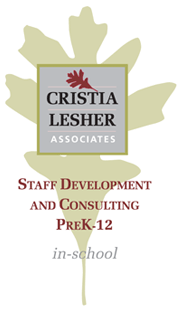Watching an emotional disability in action
Date: November 23rd, 2013
By: Polly Bath
“Spirit Week” was in full swing at Sheldon High. Every year the student council organized a week of activities to promote school spirit, culminating in a football game against our rivals, the Derby Raiders. It was “School Colors Day” and the kids were in high gear. I enjoyed participating and encouraged my students to do the same, but I did it with caution. It’s funny, I know how much they enjoy these social activities, but I’m also keenly aware of the potential for problems when easily escalated, impulsive kids are put into exciting unstructured situations. I couldn’t prevent them from attending, but I could provide a refuge if tensions arose and coping skills were depleted. One student loved these events more than anyone—Luke.
“Good morning, Luke,” I said when he arrived in my class that morning.
“Yeah, it’s gonna be a good one, for sure!” Luke said. His jeans were rolled up to expose bright red socks and red Converse All-Stars. He wore a white T-shirt and red suspenders. To top it off, his face was painted half-red and half-white.
“We’re gonna crush the other classes in the pep rally this afternoon!” Luke pumped his fist. My heart sank with worry. This afternoon’s rally would be a school spirit competition among the different grade levels. Like I said, it’s a fun week, but it represented a big red flag for some of the kids I work with who need structure daily. The screaming, yelling, and stomping was barely controlled chaos for some students, and I worried about them. And it was Luke that worried me most.
I’m a Special Education Teacher, specializing in behavior, and I had a good relationship with Luke. Over the year I’d worked with him, we’d built a mutual respect for one another. Luke is a tall, lanky, brown-eyed sophomore with thick, curly blonde hair that bounces up and down when he struts through the school. It’s hard for him to hide and he doesn’t want to—when Luke is in the hall, people know it. He’s also socially awkward and physically mildly aggressive.
What others can’t see is he’s learning disabled, emotionally disturbed, quite accurately diagnosed with ADHD, and impulsive. He’s had more than his share of failures in school, which he’d turned into a badge of honor, referring to himself as a high school “Froshman.” Froshmen are students who didn’t earn enough credits to become sophomores—they’d created this affectionate identity for themselves.
When the final bell was about to ring, unleashing over 1,000 teenagers to the gym, I took Luke aside. Frankly, I wanted to keep him from attending, but I knew I couldn’t—he’d had a good day, enjoying the attention from his outfit and painted face.
Instead, I offered him refuge in my classroom. “Luke, you can stay here if you want.”
“We’re gonna crush ’em!” he yelled.
“Okay, Luke, but if you find yourself getting overwhelmed – or that kids are getting to you – please come back to this room.”
“Yeah, yeah, okay, Miss B.” And with that he flew out the door at the sound of the bell.
As the rally got underway, I could hear the noise down the hall erupt in cheers as the excitement escalated. Simon, a student with emotional issues, made a beeline for my classroom. I welcomed him and settled him into a quiet game of computer solitaire. Two other students ventured in to escape the high emotions. I set them up with some calming activities. We talked a little about ways to cope with chaotic situations.
And then – the door flew open!
It crashed against the wall so hard it made a big hole; the windows rattled and the kids cowered.
Luke had arrived like a tank trying to fit into an elevator.
“Those *$%ing losers! I’m not putting up with their sh#*!”
He flailed his arms like a drowning victim and spewed descriptors that no one likes to hear, all about everyone at the rally.
I stood up and moved fast.
“Luke!”
But he was blind to everything but his own overwhelming feelings.
“Luke! Take a breath! Calm down. You’re okay here, settle down.” Darn it, I thought. I knew this would happen.
“Luke,” I tried again, and took a big calming breath myself, “I’m glad you’re here.”
Completely oblivious to me, Luke shouted, “I’m going back in there! Those M*&^%F***#$% aren’t gonna win!”
I have to protect him, I thought. I’ve got to stop him. If he heads back in there in this frame of mind he’s going to get himself into a lot of trouble…
Luke headed for the door, and so did I. “Luke!! Luke!!” But he paid no attention to me. He wore a glazed determined look that said, “I don’t know you and I don’t care.” But I wasn’t reading the signals nor attending to the fact that this sixteen-year-old “Froshman” was as tall and strong as a man. No, what I was thinking was that all I needed to do was stand in the doorway as the authority figure and make him stop.
So I raced for the door and beat him to it.
And then my para was helping me up from the floor.
And not long after that I was in a meeting with the administration.
. . .
“It’s district policy,” the principal told me. “It’s a teacher assault. You know the rules, Polly. Luke will have to be suspended.”
I did the paperwork and went home.
Except for my dirty white sweater and very bruised ego, I was fine. Fine, that is, except for my emotions.
. . .
Back at school on Monday, I found I had colleagues who wanted Luke gone.”Look Polly, the kid doesn’t belong here,” and “This kid is out of control. You should press charges.”
With the exception of the counselor and a couple of paraprofessionals who worked with Luke and understood his problems, my colleagues seemed to view it as an opportunity to rid the school of one more behavior problem. I felt acutely how much special educators, paras, and counselors are but a small force, often isolated. Others don’t know what we know and therefore they can easily conclude kids like Luke simply don’t belong in public school. I found myself not only sad about everything that had happened with Luke, but also deeply disappointed in my coworkers.
My principal could see my turmoil on that first Monday back.
“Polly, I want you to go home,” he said. “Later, you’ll know how you want to handle it.” His vote of confidence felt very good. I’ll always remember his support. And that night my husband told me to do what I thought was right. I was feeling pretty embarrassed and stupid at that point—that these two men had faith in me made a big difference.
But I still had a lot to work out, and for days I battled with my thoughts. Were my colleagues right? Was it time to write this kid off? That felt completely wrong. I’d worked with Luke and I knew him; he hadn’t come to school that day to create a scene. Neither had he meant to assault me. I had always told my students to “own” their side of every behavior—now it was my turn to do the same. I replayed the incident over and over in my head, asking myself, “What part of this did I contribute to with my behavior?” And then it dawned on me—I’d done everything right except for one significant action: I had stood in front of the door!
All of a sudden I was laughing at myself, and it was such a huge relief.
What had I been thinking?!
Well, I’d been thinking that being an authority figure trumped Luke being tall, male, besieged with emotion, and impulsive.
Over the next few weeks at school, I began to feel better. After all, I hadn’t been physically injured; only my ego had been shattered, and it looked like I was going to recuperate from that!
Meanwhile, something was missing. Luke. I began to wonder how he was faring with his suspension. Having made my decision not to write him off, I began to look forward to his return. I had lots to teach Luke about handling his disability, and I was ready.
Then, one morning, Luke was back. He arrived in my classroom, lanky as ever, eyes as big and brown as always, curls still fluffy. But it seemed like Luke’s spirit had been washed away with the red and white paint he’d been wearing the last time I’d seen him. Instead, he stood in the doorway looking wilted, apprehensive, and frightened.
“Okay folks, it’s Monday morning,” I said. “Let’s plan our day.” I was trying to begin class as usual, but instead of taking his seat, Luke stood in the doorway.
I started the students on an activity and then walked over to him.
“Good morning, I missed you, buddy!”
Luke looked at me as if to ask, “What are you talking about?”
His look struck me like a body blow.
At that moment, I knew that I had been the fortunate one. I’d figured out where I went wrong. I’d gotten over being furious. And I’d had time to become rational.
Luke had not. He had been suspended and held accountable, but that was where it had ended for him. I could see it on his face – all his feelings of the past few weeks were still fresh, and Luke had no idea what to do with them. He simply could not process these big emotions on his own.
Polly, I said to myself, you are watching an emotional disability in action.
Unlike me, who could process strong emotions normally, who had an understanding principal and husband to listen to me, and who could learn from such an upsetting event, Luke had no more skills today than he had had twenty days ago.
I wanted to cry.
It struck me then, just as a kid with a learning disability needs help figuring out a math problem, this kid with emotional disabilities needed help figuring out an emotional problem.
And Luke had not had any help.
So, standing in the door with scared, confused Luke, this is what I did:
“Luke, welcome back. I have some things from your teachers so you won’t fall behind. I know it must have been difficult to do a lot of the class work without any help. We’ll get through it. Do you have any questions or concerns with getting back to your classes today?”
Luke just looked at me. He was still deep in the quicksand. “Look,” I said, ” Let’s get you to your seat—and remember, if you run into anything with other kids, you know to come here, right?”
“Right,” he answered.
And he walked into class.
Polly Bath’s articles are about real people and real situations. Changes are made sufficient to protect everyone’s privacy. A veteran educator, she is a behavior consultant, trainer, author, and keynote speaker in the United States. Read more information on Polly Bath’s in-school workshops, consultations, summer institutes, and keynotes. And contact us to make arrangements for her to come to your school.


